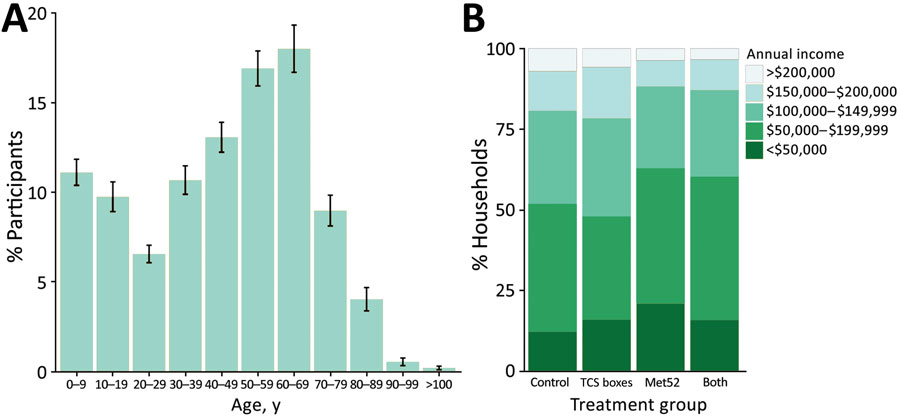Volume 28, Number 5—May 2022
Research
Effects of Tick-Control Interventions on Tick Abundance, Human Encounters with Ticks, and Incidence of Tickborne Diseases in Residential Neighborhoods, New York, USA
Figure 1

Figure 1. Characteristics of participants in study of tick-control interventions in residential neighborhoods, New York, USA. A) Mean percentage of participants in each age category at the time of enrollment, averaged for 24 neighborhoods. Error bars represent SEM. B) Mean percentage of households in each category of annual household income, averaged for the 6 neighborhoods in each treatment group. TCS, Tick Control System.
1These authors contributed equally to this article and were co-principal investigators.
Page created: March 07, 2022
Page updated: April 19, 2022
Page reviewed: April 19, 2022
The conclusions, findings, and opinions expressed by authors contributing to this journal do not necessarily reflect the official position of the U.S. Department of Health and Human Services, the Public Health Service, the Centers for Disease Control and Prevention, or the authors' affiliated institutions. Use of trade names is for identification only and does not imply endorsement by any of the groups named above.